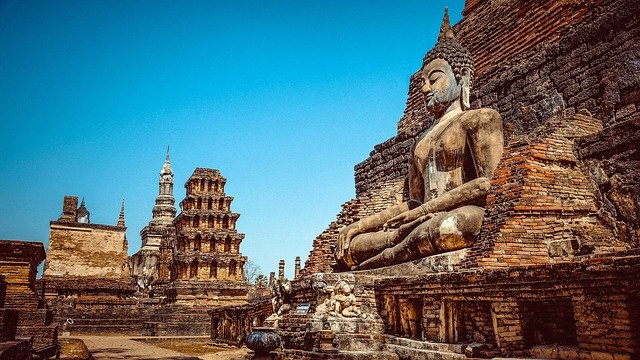Why People Need a Thailand Proxy
If you want to see a confusing Internet Censorship regime then Thailand definitely fits the bill – if I ever went to Thailand, Identity Cloaker and it’s high speed proxy network would be extremely useful!
Internet Censorship in Thailand
There are actually three main layers who block websites in Thailand although it’s all so confusing that there are probably more.
Royal Thai Police
The Royal Thai Police (RTP) is the national law enforcement agency of Thailand. It is responsible for maintaining public order, preventing and suppressing crime, and enforcing laws throughout the country. The RTP is under the command of the Ministry of Interior and is headed by the Commissioner-General of the Royal Thai Police. The organization consists of various units such as traffic police, crime suppression divisions, tourist police, and special operations units. They play a crucial role in ensuring the safety and security of Thai citizens and visitors to the country.
MICT (Ministry of Information and Communication Technology)
The Ministry of Information and Communication Technology (MICT) is a government agency responsible for the development and implementation of information and communication technology policies and initiatives in various countries. It is typically headed by a Minister or Secretary of Information and Communication Technology and consists of various departments and agencies that focus on different aspects of ICT development, regulation, and promotion. Some of the common areas that fall under the jurisdiction of MICTs include telecommunications, broadcasting, internet governance, e-government, cybersecurity, and digital innovation.
Communications Authority of Thailand
Basically there are 9 different categories which web pages are divided into –
- categories 1-3 are ok,
- Categories 4 and 5 get blocked – but nobody is quite sure why!
- category 6 – Pornography which is illegal in Thailand (quite surprising really!)
- Category 7 – Anonymous Proxy servers (which Thai people use to bypass censors)
- category 8 – Political content which is deemed unsuitable
- Category 9 – anything to do with Thai Royal Family.
This rather shambolic method is made even worse by various methods of blocking the sites although the main one was a black list sent out to the ISP in Thailand. Also there seems to be some technical problems as it appears an attempt to block a few videos on YouTube because of political content has actually blocked all of YouTube. To use the internet in Thailand especially to voice political opinions is becoming increasingly risky. Indeed many ordinary Thai people either don’t bother or use the same sort of tools and proxies as Instagram marketers use.
Whether or not this is on purpose I’m not sure but one things for sure Governments around the world are not overly fond of a website where anyone can speak their mind or make a video to criticize anything – You Tube is also routinely banned even in places like Turkey at some points.
What Internet sites are blocked in Thailand?
In Thailand, several internet sites are blocked or restricted. The exact list of blocked sites may change over time, but some commonly blocked websites include:
1. Pornographic websites: Thailand has strict laws against accessing or distributing explicit adult content, leading to the blocking of many pornographic websites.
2. Political and news websites: Some political websites, especially those critical of the Thai monarchy or government, may be blocked or heavily censored. This includes websites like Prachatai, Thai E-News, and Asia Sentinel.
3. Social media platforms: Occasionally, social media platforms like Facebook, Twitter, and Instagram have been temporarily blocked or restricted during politically sensitive times to prevent the spread of dissenting views or misinformation.
4. File-sharing websites: Websites like The Pirate Bay and Torrentz are often blocked in Thailand due to copyright infringement concerns.
5. Online gambling websites: Gambling is illegal in Thailand, so online gambling sites are generally blocked.
6. VPN and proxy websites: Some virtual private network (VPN) and proxy websites might be inaccessible as they allow users to bypass internet censorship and access blocked content.
It is important to note that this list is not exhaustive and the availability of certain websites may vary. Additionally, the Thai government has been known to periodically impose restrictions on specific platforms or content, so the internet landscape can be subject to change.
Using a Proxy in Thailand
Whether you just find the number of blocked web sites restrictive or you don’t feel safe online then using a proxy in Thailand makes a lot of sense. Not only can it protect yourself online, as long as you’re careful on social media – it can also ensure you’re able to access sites and resources not normally available in Thailand.
Remember though, most of the Government restrictions are based on location and IP address. So using a Thai proxy – that is a proxy server based in Thailand won’t actually help with blocked sites. You’ll need to redirect your proxy service to a server in another country – e.g. if you want to watch the BBC then choose a UK proxy server, Hulu needs a US server and so on.
So if you’re off to work or holiday in Thailand and you use the internet a small investment in Identity Cloaker could be worth your while for a working Thailand proxy route out of the country!
